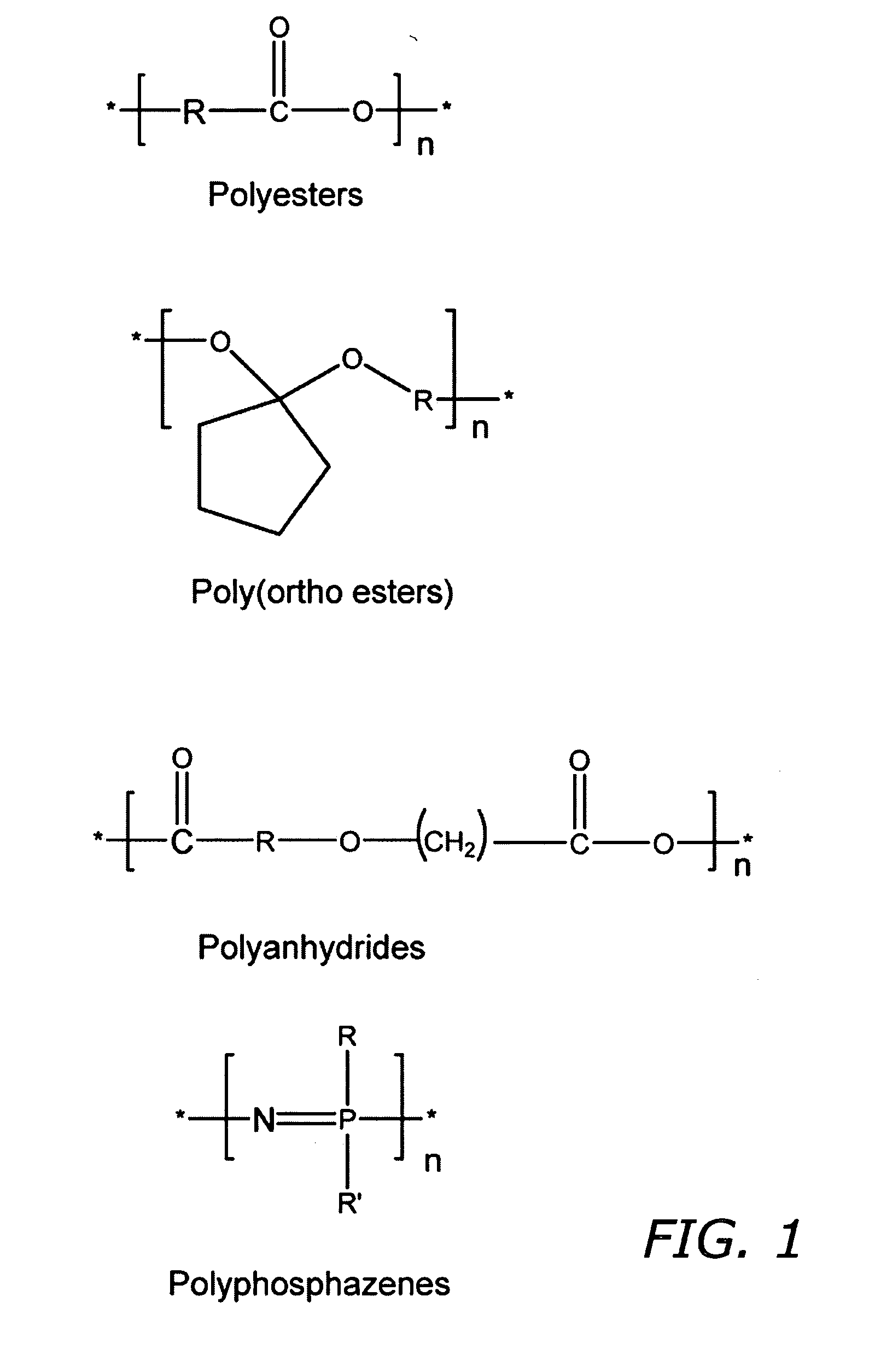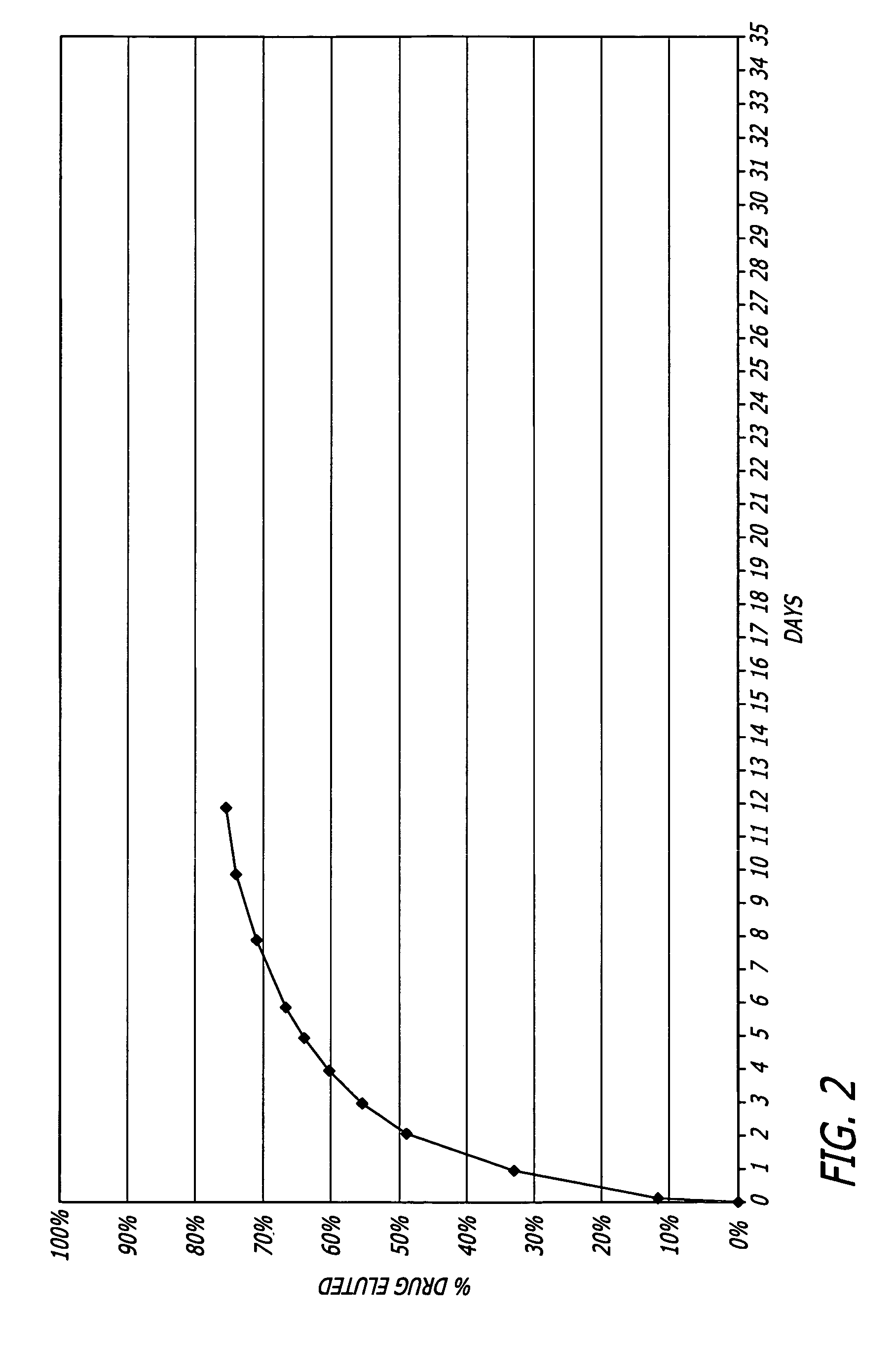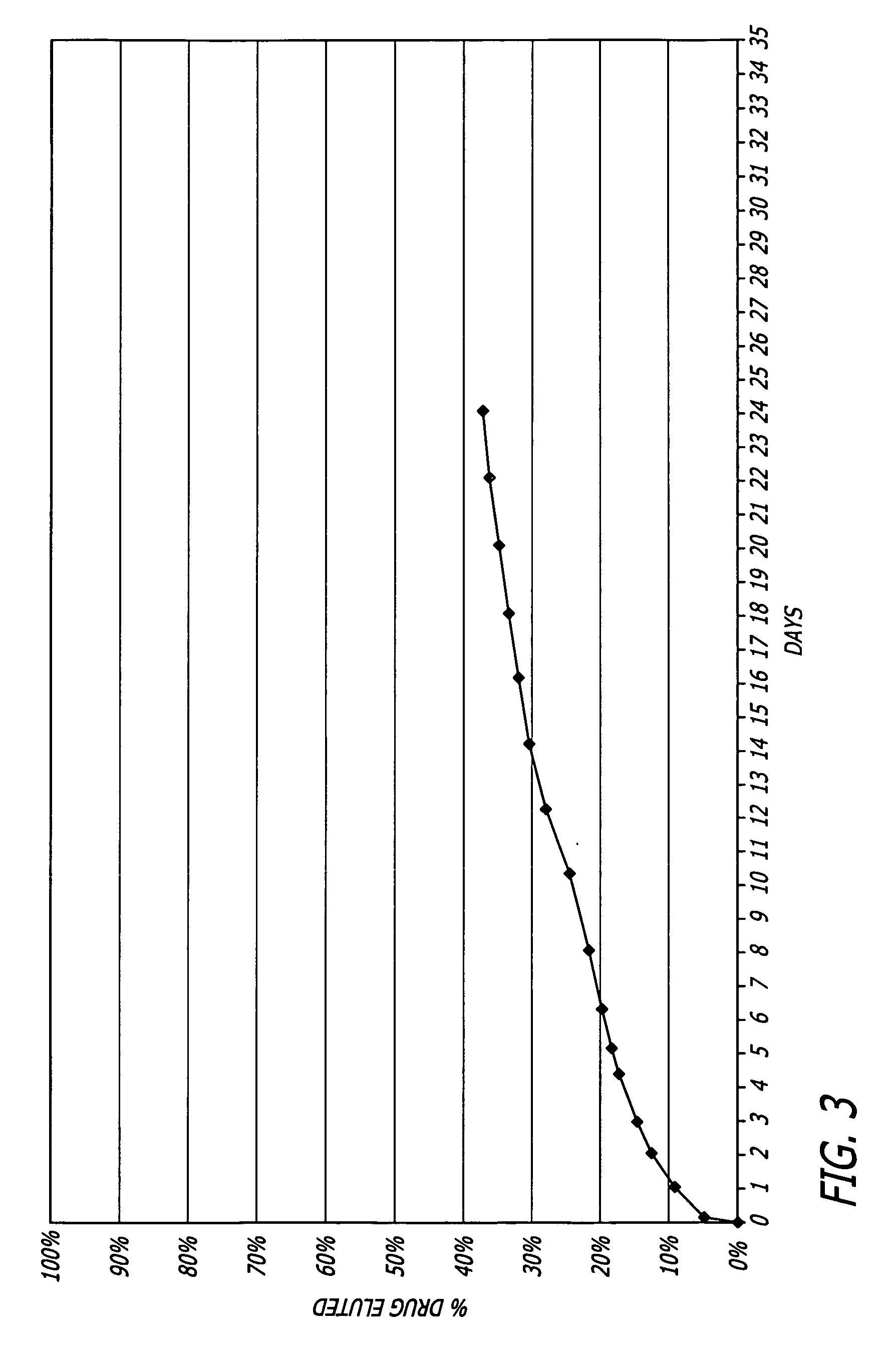Nitric oxide-releasing polymers derived from modified polymers
a technology of modified polymers and nitric oxide, applied in the field of polymers, can solve the problems of inability to use with implantable medical devices, inability to stabilize polyethylenimines (as well as other poly(alkyl imines)), and achieve the effect of treating or inhibiting restenosis
- Summary
- Abstract
- Description
- Claims
- Application Information
AI Technical Summary
Benefits of technology
Problems solved by technology
Method used
Image
Examples
example 1
Preparation of a Hydrophilic, Water Insoluble Poly(ethylenimine)-Alkyl Anhydride Polymer Backbone
[0051]
[0052] n is an integer from 1 to 107, x and y are repeating units individually between 1 and 20,000 and R is a hydrogen or a C1 to C20 branched or straight chain alkyl group.
example 2
Diazeniumdiolation of Medical Devices Previously Provided with the Nucleophile Residues of the Compound of Formula II
[0053] The polymer of Example 1 (Formula II) is dissolved in a suitable organic solvent such as chloroform or tetrahydrofuran (THF). At this step, one or more bioactive agents such as, but not limited to, zotarolimus, estrogens, chaperone inhibitors, protease inhibitors, protein-tyrosine kinase inhibitors, leptomycin B, peroxisome proliferator-activated receptor gamma ligands (PPARγ), hypothemycin, bisphosphonates, epidermal growth factor inhibitors, antibodies, proteasome inhibitors, antibiotics, anti-inflammatories, anti-sense nucleotides and transforming nucleic acids may be included in the polymer solution. Next the solubilized polymer (with or without added bioactive agents) is applied to the surfaces of an implantable medical device using methods known to those skilled in the art such as, but not limited to, rolling, dipping, spraying and painting. Excess polym...
PUM
| Property | Measurement | Unit |
|---|---|---|
| thick | aaaaa | aaaaa |
| thick | aaaaa | aaaaa |
| diameter | aaaaa | aaaaa |
Abstract
Description
Claims
Application Information
 Login to View More
Login to View More - R&D
- Intellectual Property
- Life Sciences
- Materials
- Tech Scout
- Unparalleled Data Quality
- Higher Quality Content
- 60% Fewer Hallucinations
Browse by: Latest US Patents, China's latest patents, Technical Efficacy Thesaurus, Application Domain, Technology Topic, Popular Technical Reports.
© 2025 PatSnap. All rights reserved.Legal|Privacy policy|Modern Slavery Act Transparency Statement|Sitemap|About US| Contact US: help@patsnap.com



